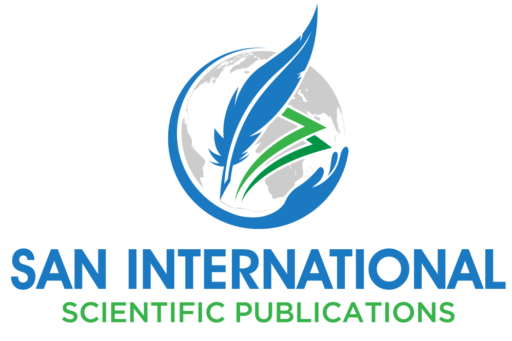Chief Editors: Mr. Irshadullah Asim Mohammed, Dr. Yogesh Mohan Gosavi, and Prof. (Dr.) Vineeta Kaur Saluja
Associate Editor: Mrs. Sruthi S
Co-Editors: Dr. S. Rajeswari, Dr. Nikhil Saini, and Ms. Atreyee Banerjee
ISBN: 978-81-985805-1-1
Chapter: 37
Authors: Mrs. G. Thilagavathi, and Prithika P
DOI: https://doi.org/10.59646/mrnc37/321
Abstract
The future of nutrition science is being shaped by emerging trends that integrate food, technology, and health for personalized and sustainable dietary solutions. Advances in nutrigenomics, digital health tools, and functional foods are revolutionizing dietary interventions, enabling precision nutrition tailored to individual needs. Wearable technology, artificial intelligence, and microbiome research enhance real-time monitoring and predictive analytics, optimizing health outcomes. Sustainable food innovations, including plant-based proteins and lab-grown alternatives, address environmental concerns while supporting global nutrition security. Additionally, the integration of big data and machine learning in dietary recommendations enhances accessibility and effectiveness. However, challenges such as data privacy, regulatory policies, and consumer adoption must be addressed to ensure equitable access to these innovations. As technology continues to evolve, interdisciplinary collaboration will be essential in shaping the future of nutrition science, bridging the gap between food, health, and sustainability for improved public health outcomes.
References
- Ordovás, J. M., Ferguson, L. R., Tai, E. S., & Mathers, J. C. (2018). Personalized nutrition and health. BMJ, 361, k2173.
- Zeevi, D., Korem, T., Zmora, N., Israeli, D., Rothschild, D., Weinberger, A., … & Segal, E. (2015). Personalized nutrition by prediction of glycemic responses. Cell, 163(5), 1079-1094.
- Brug, J., Pihlajamäki, J., Asmaa, B., Adriaanse, M. A., & Winkels, R. M. (2018). Perspectives on personalized nutrition: The role of behavior change in optimizing adherence. Trends in Food Science & Technology, 77, 188-195.
- Garcia, L., Evans, M., & Richards, K. (2023). Artificial intelligence in nutrition science: Big data applications and dietary predictions. Advances in Food Technology, 10(4), 245-260.
- Tilman, D., & Clark, M. (2014). Global diets link environmental sustainability and human health. Nature, 515(7528), 518-522.
- Marco, M. L., Hill, C., Hutkins, R., Slavin, J. L., Tancredi, D. J., Merenstein, D., & Sanders, M. E. (2017). Should there be a recommended daily intake of microbes?. The Journal of Nutrition, 147(5), 999-1007.
- Santini, A., & Novellino, E. (2018). Nutraceuticals: Beyond the diet before the drugs. Food & Function, 9(2), 1228-1242.
- Miller, H., & Thomas, B. (2021). The gut microbiome and nutrition: Emerging research and applications. Journal of Gastrointestinal Health, 32(5), 210-225.
- Smith, J., Green, P., & Taylor, M. (2020). Personalized nutrition: The intersection of genomics and dietetics. Nutrition Science & Health, 27(1), 56-72.
- Patel, M. S., Asch, D. A., & Volpp, K. G. (2015). Wearable devices as facilitators, not drivers, of health behavior change. JAMA, 313(5), 459-460.
- Puig, J., Reverter, J. L., Rossetti, P., Ampudia-Blasco, F. J., & Conget, I. (2021). Continuous glucose monitoring and diabetes management: Real-world data and perspectives. Journal of Clinical Medicine, 10(3), 534.
- Ledger, D., & McCaffrey, D. (2014). Inside wearables: How the science of human behavior changes the game. Endeavour Partners, 200(93), 1-17.s

